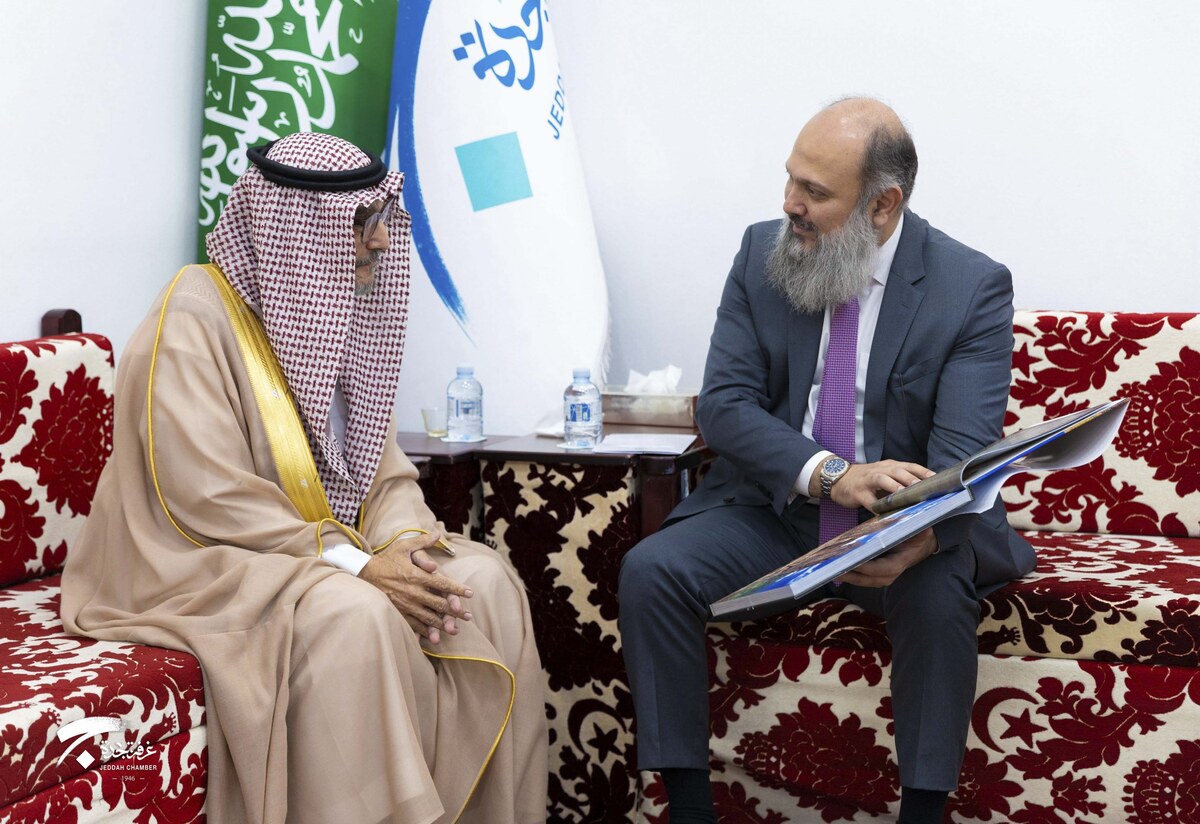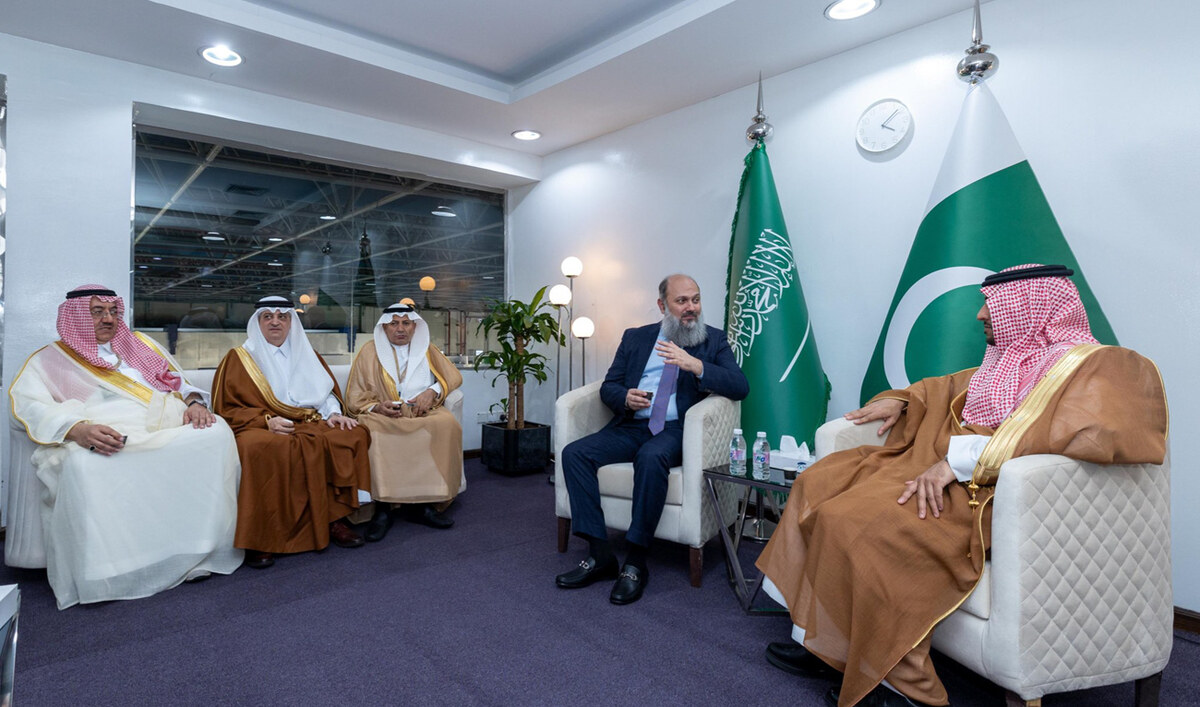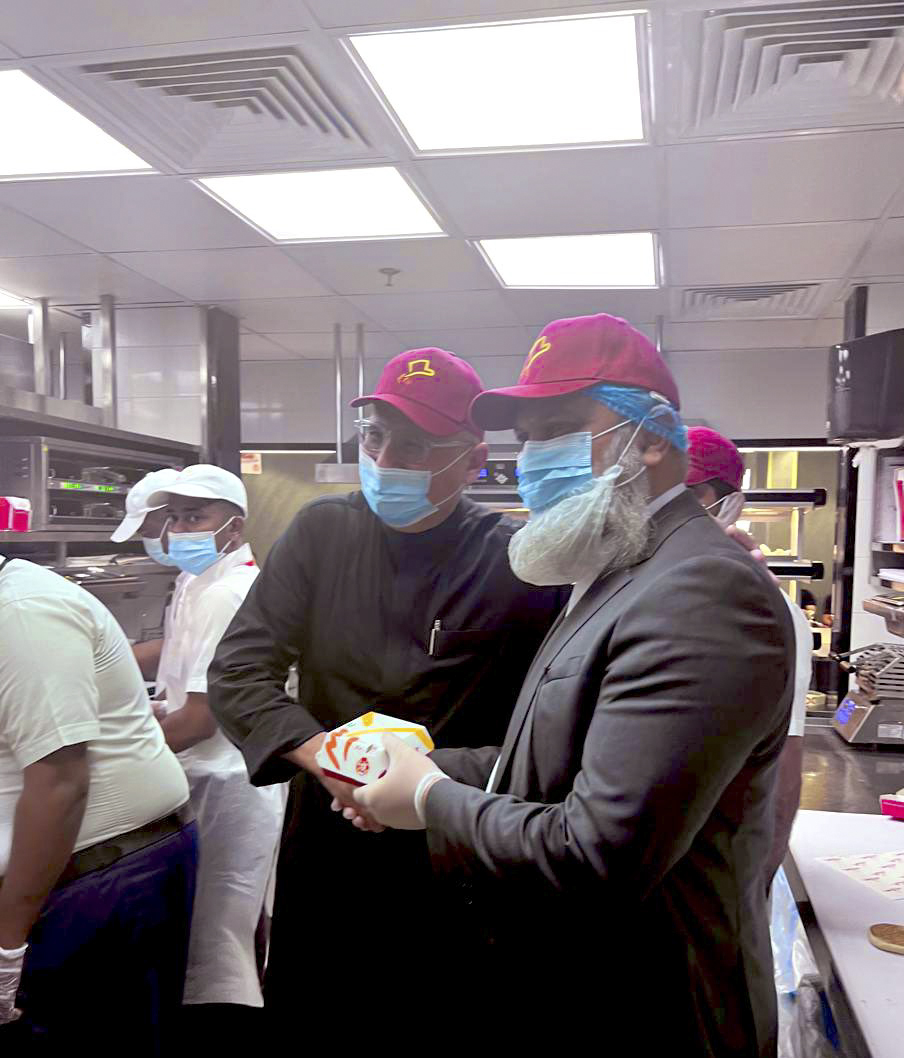Fighting desertification and land degradation for future generations

https://arab.news/6h2vc
Floods, heat waves, wildfires and the recent global coral bleaching event are all stark reminders that climate change is not a distant threat but rather an immediate crisis that is reshaping our world. One symptom of this crisis is desertification.
Desertification, a term that may be unfamiliar to many, is a growing problem. In simple terms, it is the process by which once-fertile land turns into desert as the quality of the soil degrades over time.
Every second, the equivalent of four football fields of healthy land is degraded, totaling 100 million hectares a year, according to the UN. This is already having a catastrophic effect on communities, ecosystems, food security and water resources, especially in the world’s poorest countries.
And, as desertification spreads into new geographies, the effects are set to worsen. According to the UN, 3.2 billion people are already impacted by desertification and 50 million could be displaced in the next 10 years, making it one of the most serious environmental problems facing humanity.
The UN has also said that more than 24 billion tons of fertile soil disappear every year. Two-thirds of our planet is currently undergoing desertification. If no action is taken, 1.5 million sq. km of farmland, equivalent to the entire arable land of India, will be lost by 2050.
As the UN Environment Programme has stated, ours is the first generation to fully comprehend the enormity of the threat posed to our land and we may well be the last to have the opportunity to reverse the course of its destruction.
Therefore, it is vital that businesses, governments, communities and nongovernmental organizations urgently work together to prioritize the restoration of land ecosystems by replanting forests, rewetting marshes and reviving soils.
That means coming together to push and promote coordinated land-use planning, including the management of water resources, livestock and agricultural activities, and preserving vegetation cover, which plays a key role in protecting the soil from wind and water erosion.
Reforestation is also vital to regenerate vegetation cover, reactivate moisture circulation and generate biodiversity. So is rotational grazing, which limits pressure to a particular area while others regenerate through the coexistence of crops that allow for more efficient nutrient cycling.
If no action is taken, 1.5 million square kilometers of farmland, equivalent to the entire arable land of India, will be lost by 2050.
Raed Albasseet
It is also important to remember that, while tackling desertification, drought and land degradation will undoubtedly require the use of novel, innovative and cutting-edge methodologies, nature often already provides the best solution.
At Red Sea Global, we have established a mangrove nursery to aid us in our goal to plant as many as 50 million mangrove trees by 2030.
We have already planted 1 million and will plant a further 2 million before the year is out. These mangroves will provide shelter for a diversity of wildlife and will sequester carbon, with the capacity to absorb up to five to 10 times more than other plants.
The power of mangrove forests to store carbon, manage flooding, stabilize coastlines and provide shelter for fish and other organisms makes them one of nature’s super ecosystems.
At more than 1 million sq. meters, our landscape nursery is the largest in the region. It will contain more than 30 million plants, reducing our reliance on imported foreign species and allowing native ones to thrive.
Looking specifically at this year’s World Environment Day, which fell on June 5, it is encouraging to see plans to accelerate the commitments made in the UN’s Decade on Ecosystem Restoration resolution.
Restoration efforts, like those in Kenya, offer a glimmer of hope. The Kenyan government has pledged to rehabilitate 5.1 million hectares of degraded land by 2030. This will improve the lives of Kenyans who rely on land resources for their livelihoods, while also curbing the country’s carbon dioxide emissions by 3.7 percent and safeguarding its biodiversity.
As the host of this year’s World Environment Day, Saudi Arabia launched a campaign to combat desertification and build drought resilience. The Kingdom is already restoring huge swathes of arid and semi-arid land to its original green and wild state and leading the G20 Global Land Initiative.
Nature is our greatest asset. But nature needs nurture. Now is the time to come together to push the planet onto a path of sustainability and resilience, and to ensure we protect it for future generations.
• Raed Albasseet is the group chief environment and sustainability officer at Red Sea Global.






























